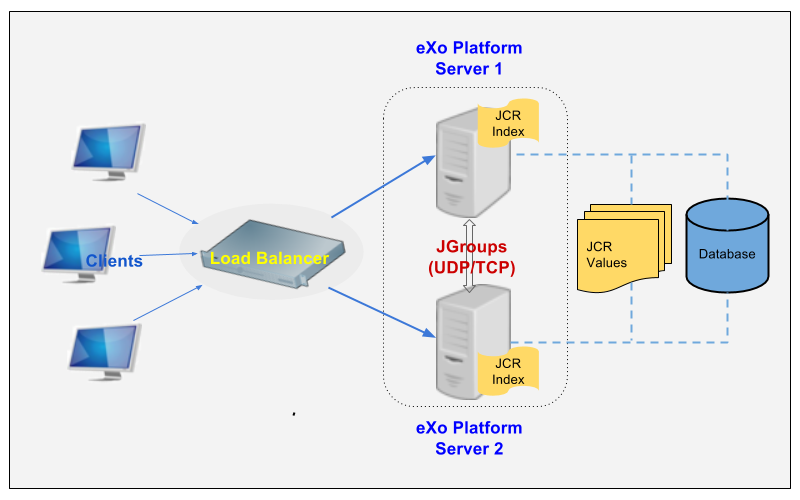Cluster mode is the solution for high performance system. It offers Load Balancing and High Availability features.
A Platform cluster is a set of nodes that communicate via JGroups - UDP or TCP - in the back-end, and a front-end Load Balancer like Apache mod_jk that distributes HTTP requests to the nodes. The High Availability is achieved in the data layer natively by the RDBMS or Shared File Systems, such as SAN and NAS.
The following diagram illustrates a cluster field with two nodes (each node uses its local JCR index storage, but you can enable shared JCR indexing, as described in the chapter).

In this chapter:
Setting up eXo Platform cluster
How to set up eXo Platform cluster.
Configuration and explanation of JCR index strategies (local and shared).
Activating TCP default configuration files
How to use TCP default configuration files.
Configuring JGroups via exo.properties
A list of default values and variable names that you can configure via
exo.properties.Using customized JGroups xml files
In case you have a configuration that is not externalized, or you want to migrate your JGroups xml files from previous versions, read this section to activate your xml files.
How to set up load balancing using Apache mod_jk.
Common questions and answers that are useful for administrators when doing a clustering on eXo Platform.